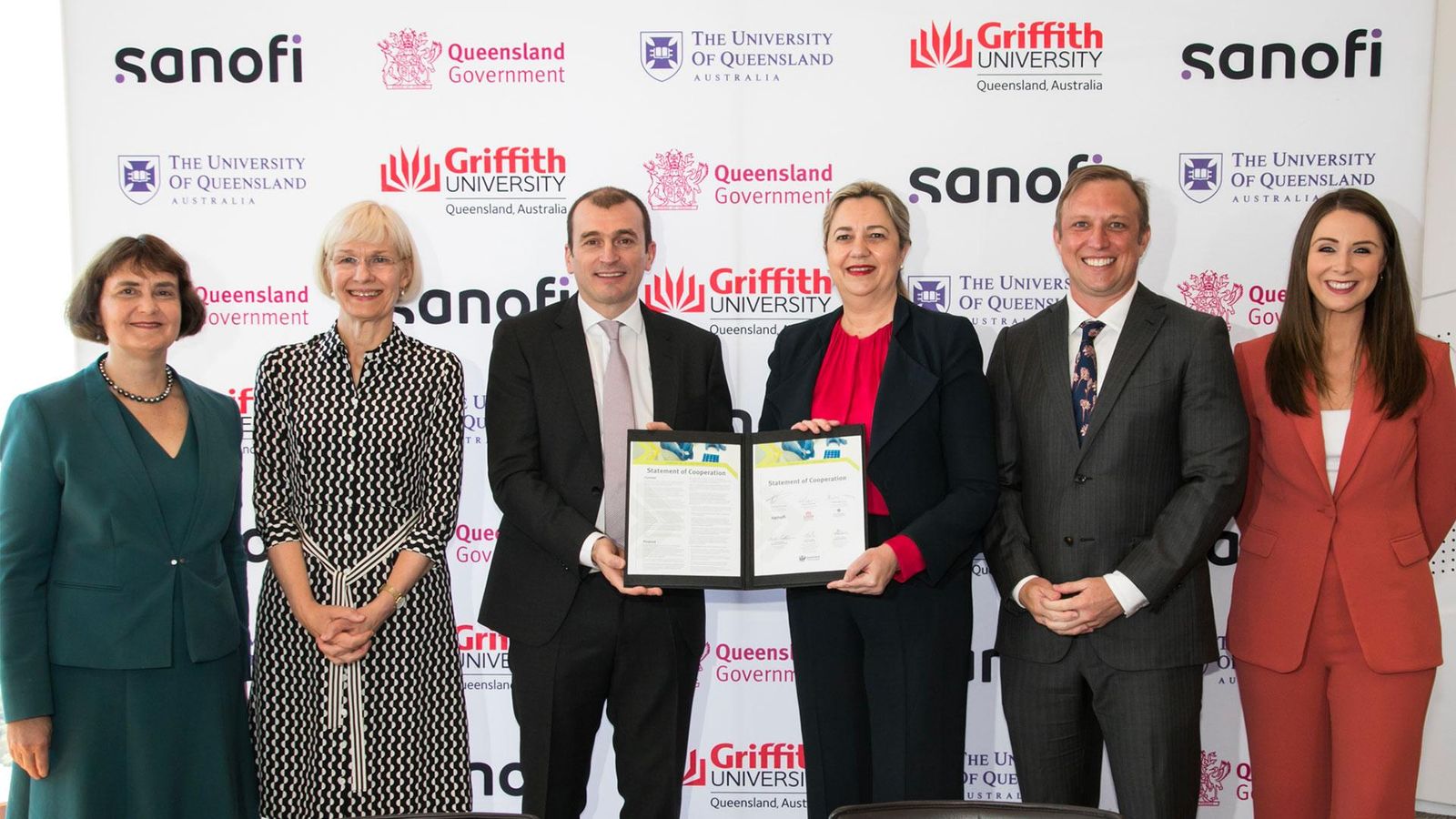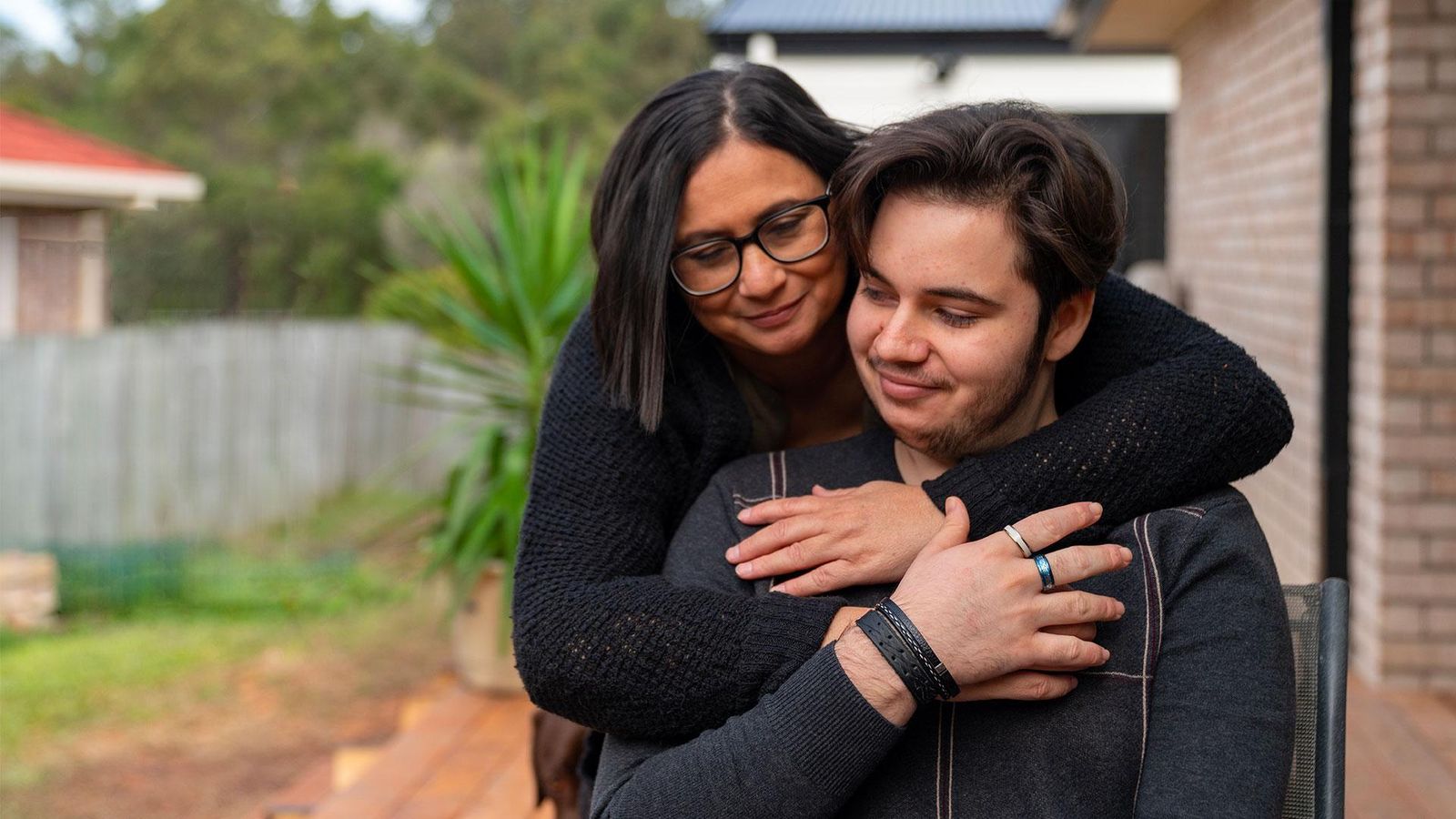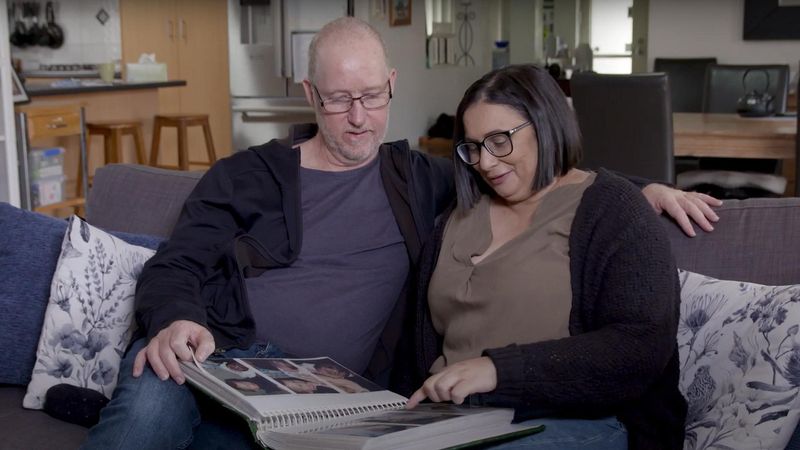Sanofi is #WithVaccines
We are a leading innovator and one of the world’s largest manufacturers of vaccines. Our company is at the forefront of vaccine development across an expansive and ever-growing range of diseases.

We are proud that our vaccines provide protection against a wide range of severe infectious diseases while we continuously strive to develop new and improved vaccines to support public health.
This year alone, we will deliver almost 7 million doses of 15 different vaccines (8 of which are on the National Immunisation Program) to help protect Australians against diseases ranging from influenza and whooping cough to meningococcal meningitis.

Sanofi works in partnership with all levels of government as well as with the medical community to ensure the value of vaccine innovation is recognised and the benefits realised for all Australians.
Together with the Queensland Government, The University of Queensland and Griffith University, we launched the Translational Science Hub that is connecting researchers in Queensland with Sanofi scientists in France and the US.

How do vaccines work?
Vaccines essentially work to strengthen our immune system to protect against a viral or bacterial infection. They do this by producing an immune response, the body’s natural way of defending itself, without causing illness.1,2
Most vaccines use dead or severely weakened viruses or bacteria to train our body to recognise and fight the specific virus that causes an illness. They do not cause an infection, but our immune system still sees them as an ‘enemy’ and produces antibodies to help protect against future infection.1,2
Our immune system is likely to remember the ‘enemy’ and when exposed to that virus or bacteria in the future, will rapidly produce antibodies to destroy it.1,2

Why do we need vaccines?
Vaccination is one the most successful forms of disease prevention.3 Vaccines help protect us from many viral and bacterial infections that can cause serious illness and claim lives. Vaccination is one of the most important things we can do to protect ourselves and our children from vaccine preventable illness.4,5
However, vaccines also work at the community level. Some people can't be vaccinated, either because they are too young or because their immune system is weak. But if those around them are vaccinated, unvaccinated people benefit from something called ‘herd protection’. Put simply, because they are less likely to come in contact with the disease, they are unlikely to become sick.4,5
How are vaccines tested and approved?
All vaccines undergo rigorous safety testing before they are approved for use in Australia. During vaccine development, vaccine safety is tested in several stages. The first stage involves pre-clinical assessment in the laboratory. If a vaccine passes these safety tests, it is then evaluated in three phases of clinical trials, usually involving thousands of people.6
All vaccines available in Australia are thoroughly tested and reviewed before they are approved for use by our national medicines regulator, the Therapeutic Goods Administration (TGA). Vaccines only become available if they meet the TGA’s rigorous standards for safety, quality and efficacy.7 Once available, the TGA continues to closely monitor the safety of vaccines, along with how well they work in the community.7
Why vaccines matter
For over 100 years, we have been protecting the health of millions. But an additional 1.5 million lives could be saved each year with improved vaccination coverage (9). Here are some Australian stories.
Lily was only 23 when she began to show the early signs of meningococcal disease. 24 hours later, she was battling for her life in hospital that would later require a kidney transplant from her sister.

Tanya has lived with asthma all her life, but 20 years ago she and her newborn were hospitalised with an infectious respiratory disease that could have ended in tragedy.

At first it seemed like a cold for baby Willow, but this soon turned into a serious diagnosis that required hospital.
Discover More
Vaccine Hub
A go-to resource for information on vaccine-preventable diseases, travel health and immunisation
Vaccine Production
How do we produce a vaccine?
Value of Vaccines
Vaccination saves lives at every stage of life
The Meningitis Flag
The first ever global symbol people can rally behind to defeat meningitis by 2030.
References
1. Australian Department of Health. Immunisation: About Immunisation 2024. Available at: https://www.health.gov.au/health-topics/immunisation/about-immunisation/how-does-immunisation-work Accessed January 2024
2. World Health Organisation. How do Vaccines Work? Available at: https://www.who.int/news-room/feature-stories/detail/how-do-vaccines-work Accessed January 2024
3. Andre FE, Booy R, et al. Vaccination greatly reduces disease, disability, death and inequity worldwide. Bulletin of the World Health Organization, 2008, Bulletin of the World Health Organization, Vol. 86, pp. 81-160.
4. UK National Health Service. Why Vaccination is Important and the Safest Way to Protect Yourself. 2019. Available at: https://www.nhs.uk/conditions/vaccinations/why-vaccination-is-safe-and-important/. Accessed January 2024
5. Australian Academy of Science. Are Vaccines Safe? 2021. Available at: https://www.science.org.au/learning/general-audience/science-booklets/science-immunisation/5-how-are-vaccines-shown-be-safe. Accessed January 2024
6. Australian Department of Health. Immunisation: Vaccine Safety 2024. Available at: https://www.health.gov.au/health-topics/immunisation/about-immunisation/are-vaccines-safe. Accessed January 2024
7. World Health Organization (2019) Immunization Facts in Pictures. Accessed January 2024.
This site is intended for an audience in Australia. Reviewed 2024.